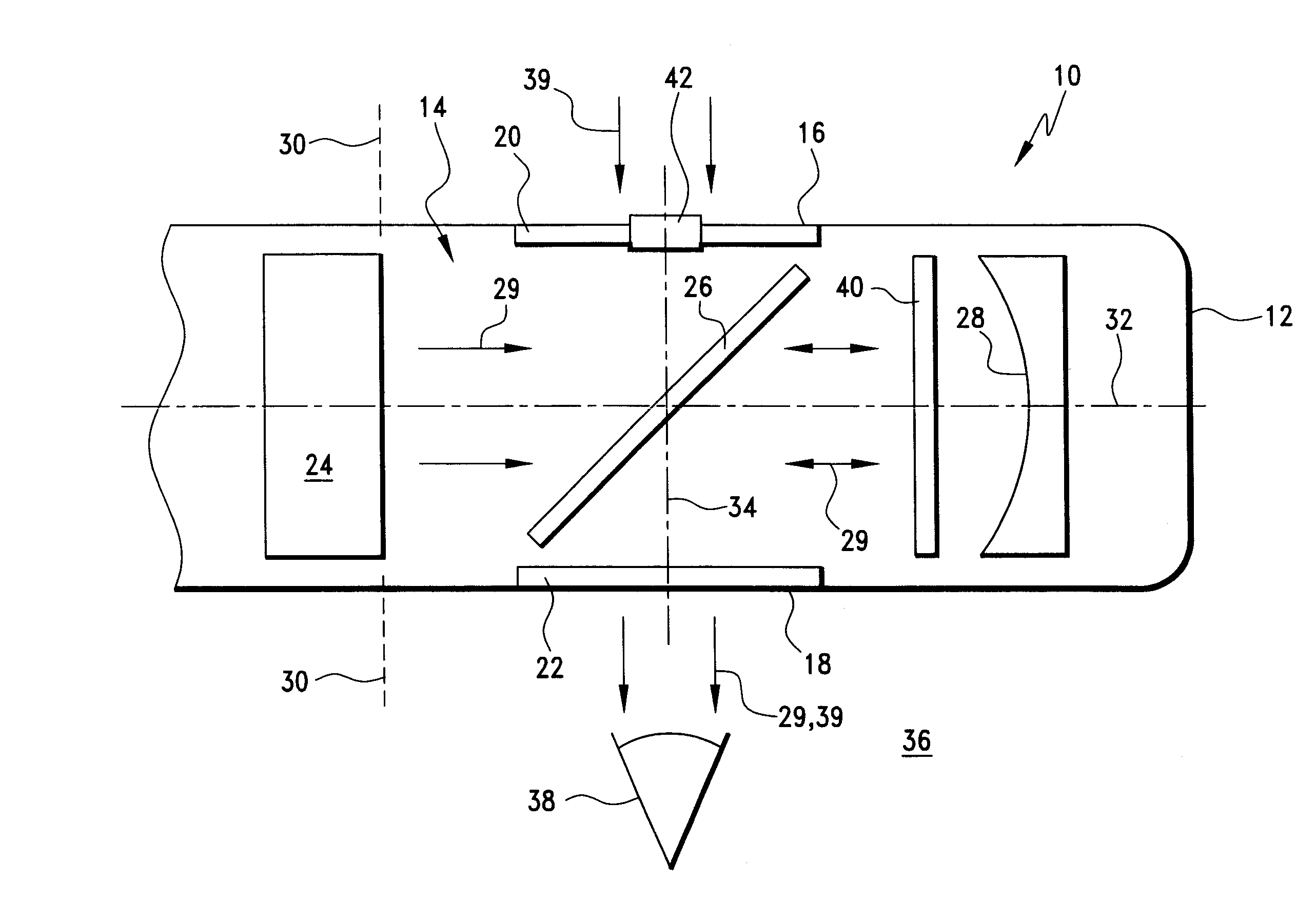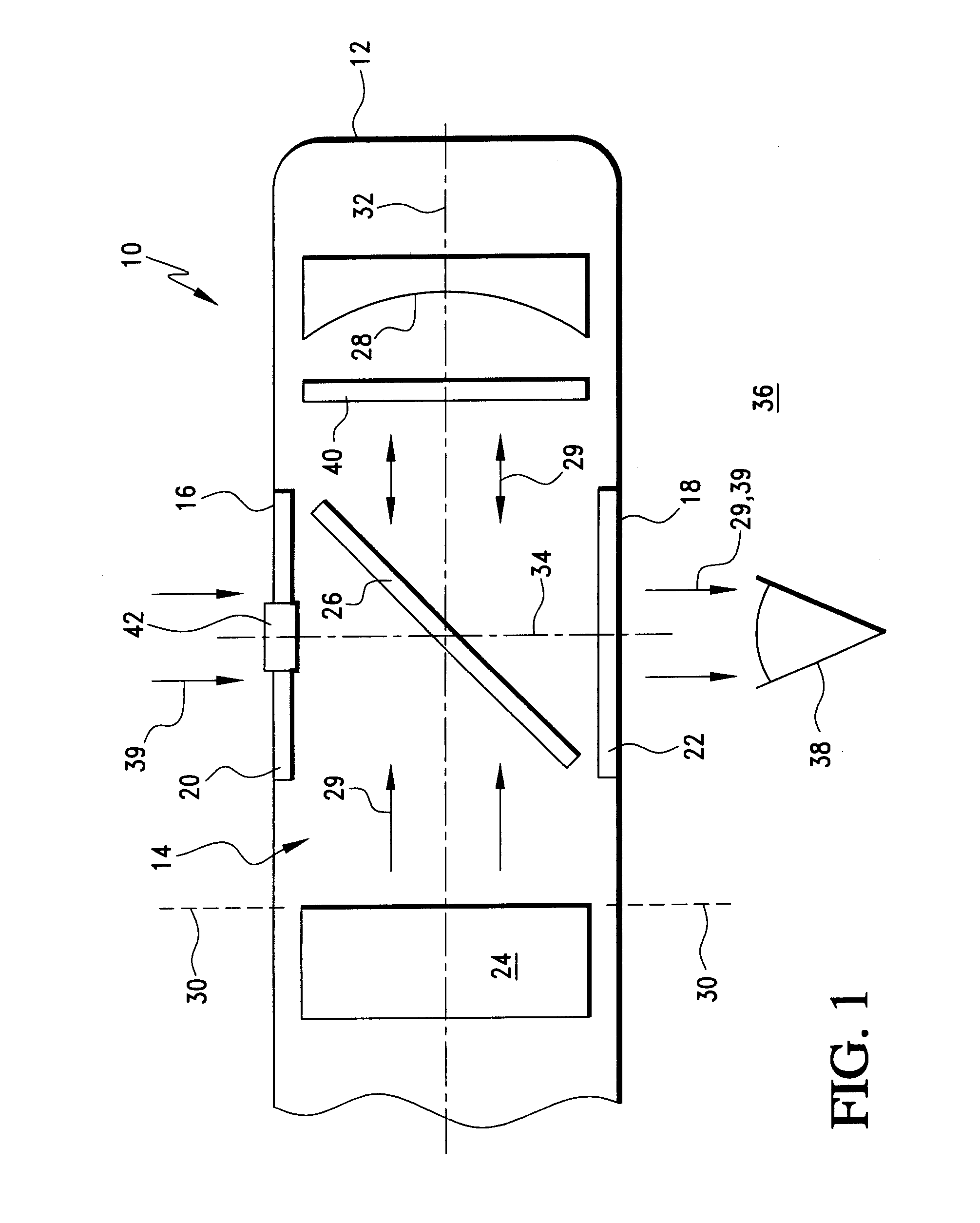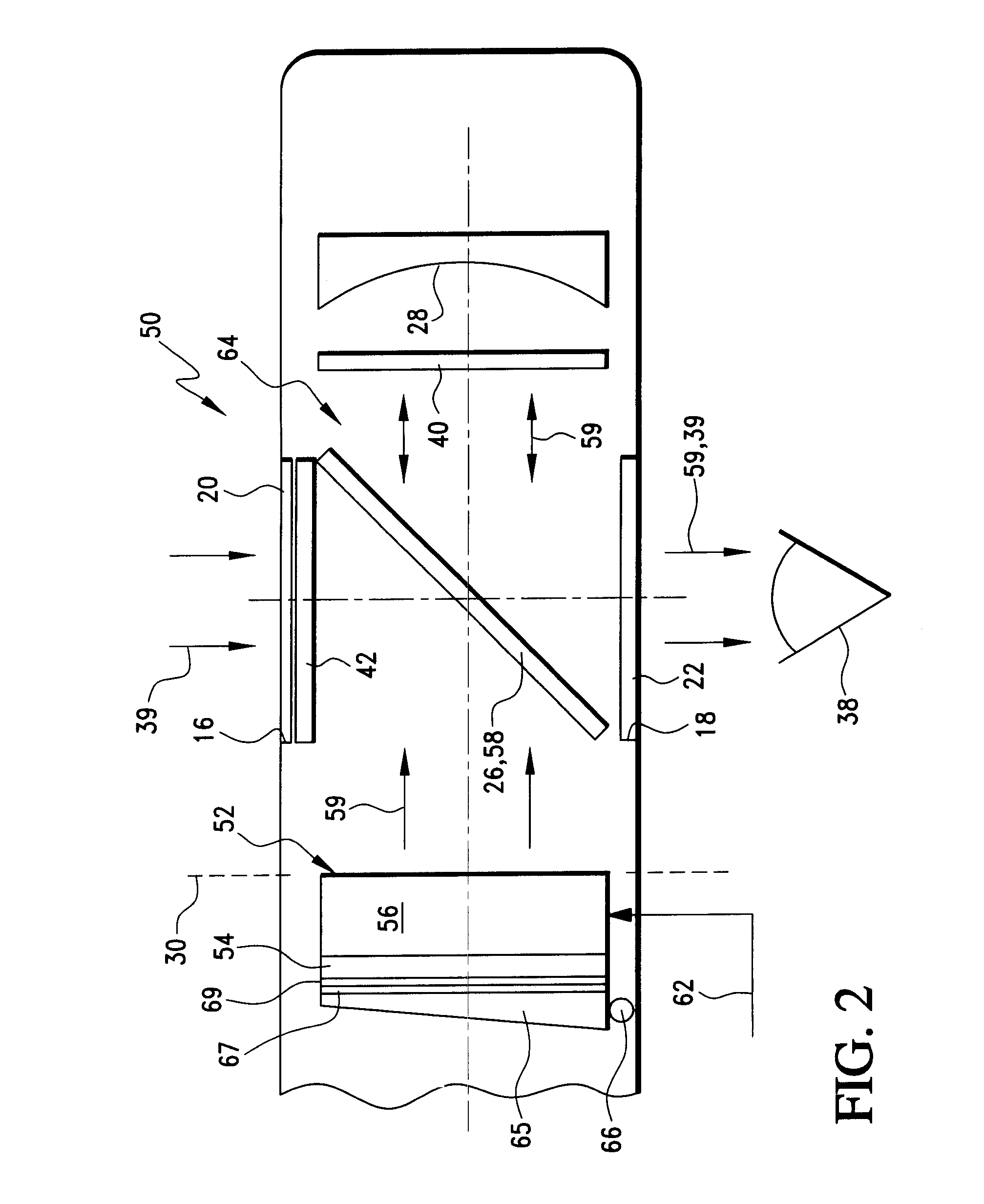Micro-display engine
a micro-display engine and engine body technology, applied in the field of micro-display engines, can solve the problems of inefficient loss of image light, loss of some light from the image source, loss of some on-axis ambient light, etc., and achieve the effects of improving the efficiency and performance of micro-display engines, enhancing viewing performance, and improving us
- Summary
- Abstract
- Description
- Claims
- Application Information
AI Technical Summary
Benefits of technology
Problems solved by technology
Method used
Image
Examples
Embodiment Construction
[0044]A non-immersive display 10 of the type especially suitable for use in portable display devices such as head-mounted viewers is depicted in FIG. 1. A housing 12 of the display (only part of which is shown in FIG. 1) supports and provides any required shrouding for a micro-display engine 14. For example, the housing 12 can be molded into a form that provides for locating, mounting, and enclosing components of the micro-display engine 14 and also provides for limiting or excluding the ingress of unwanted environmental light into the optical pathways of the micro-display engine 14 or into the viewing path of an observer. Typical of head-mounted displays, the housing can be fashioned in the form of one or more eyecups.
[0045]In the non-immersive embodiment depicted in FIG. 1, limited amounts of ambient environmental light are admitted into the housing 12 through an ambient-light-admitting aperture 16. Images produced within the housing 12 can be viewed through a viewing aperture 18 ...
PUM
 Login to View More
Login to View More Abstract
Description
Claims
Application Information
 Login to View More
Login to View More - R&D
- Intellectual Property
- Life Sciences
- Materials
- Tech Scout
- Unparalleled Data Quality
- Higher Quality Content
- 60% Fewer Hallucinations
Browse by: Latest US Patents, China's latest patents, Technical Efficacy Thesaurus, Application Domain, Technology Topic, Popular Technical Reports.
© 2025 PatSnap. All rights reserved.Legal|Privacy policy|Modern Slavery Act Transparency Statement|Sitemap|About US| Contact US: help@patsnap.com



